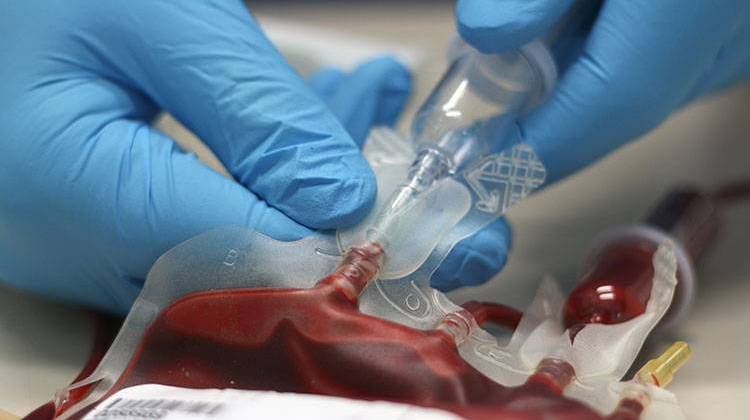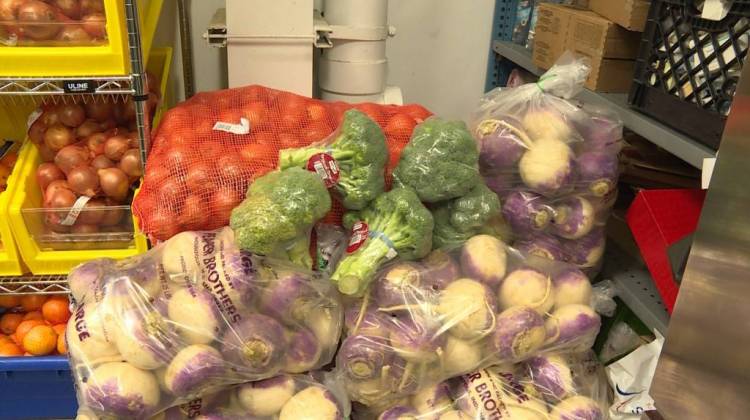Updated Jan. 24 at 1:05 p.m.
Two weeks of bad weather in Indiana has resulted in critically low levels of blood supply. The weather has impacted both on-site blood donations and mobile drives.
The Indiana Blood Center needs more than 550 blood donations a day to have ample stock.
Dan Waxman, chief medical officer at the Indiana Blood Center, says they provide blood and plasma to hospitals and trauma centers across the state.
"These trauma centers need blood products at the ready to handle the cases," says Waxman. "And some of these cases can literally go through several hundred blood products."
People 17 or older can donate blood in Indiana – 16 year-olds can donate with parent permission. There are some federally mandated restrictions and waiting periods. People on medication for high blood pressure or diabetes may also be able to donate.
Waxman says they need a three day supply to meet needs.
“And each blood donation can actually be made into several products, so you’re not just saving one life, you can save two to three lives," says Waxman.
The center says it is especially in need of O-negative donations. O-negative is universal and used in the ER when there is no time to determine blood type.
More than 90,000 Hoosiers donate every year through the blood center. The organization operates blood centers in Indianapolis, Fishers, Carmel, Greenwood, Lafayette and Terre Haute.
CLARIFICATION: A previous version of this story said “anyone in good health who is 17 or older can donate blood in Indiana.” It has been changed to restrictions like the federal rules which bar a man who has had sex with man in the past 12 months from donating.
These restrictions are sometimes called deferrals because a person who is abstinent for a year may be able to give blood. There are also deferrals for people who received some tattoos and have had cancer. There are indefinite referrals for people who have injected non-prescribed drugs or were sex workers. The FDA requires blood centers to follow these rules.
 DONATE
DONATE










 Support WFYI. We can't do it without you.
Support WFYI. We can't do it without you.